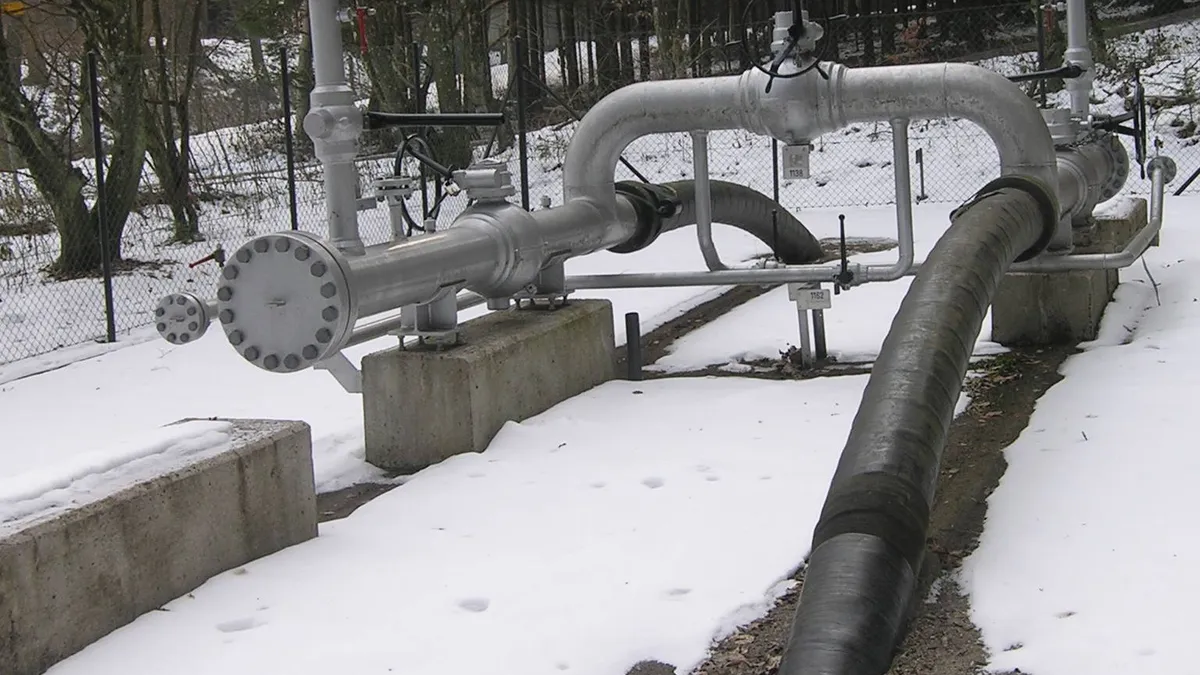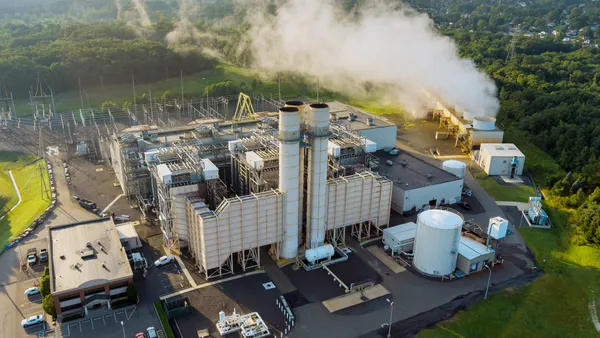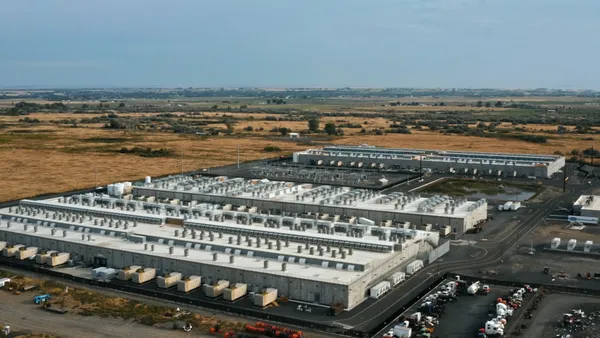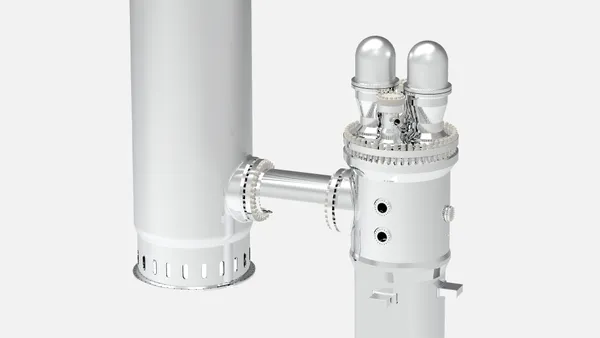Dive Brief:
- A new report from Oil Change International and 11 other groups concludes a slate of natural gas pipeline proposals in the Appalachian Basin threatens progress the United States has made on reducing carbon emissions, and could keep the country from meeting its Paris climate commitments.
- The report identifies 19 new proposed natural gas pipelines in the Appalachian basin, and finds "all of them are incompatible with the Paris target and existing US climate goals."
- The groups wants federal regulators to apply a "climate test" to all fossil fuel projects, and say any analysis of the need for gas supply "must be premised on national and international climate goals, not business-as-usual."
Dive Insight:
Oil Change International, along with Sierra Club, Chesapeake Climate Action Network, Earthworks and other environmental groups, have focused their attention on the gas pipeline projects proposed for the Appalachian Basin because that is the largest source of projected growth in gas production. But they argue all projects need to be tested against national and international climate goals.
“Expanded natural gas production is a bridge to climate disaster. Our report shows that even if we entirely eliminated emissions from coal and oil, the emissions from the natural gas boom alone would still blow our climate budget,” Oil Change Executive Director Stephen Kretzmann said in a statement. "This should be a wake up call to anyone promoting natural gas as a bridge to a clean energy future. Put simply, it’s not.”
Since 2009, production from the region has grown more than 1,000%, according to the report. In 2014 and 2015, 11 major projects were completed, adding around 5.25 billion cubic feet per day (Bcf/d).
Constitution Pipeline, which began construction in the spring but has hit roadblocks in New York, would add 650 MMcf/d, with another 18 projects under consideration. Eight of those are new-build projects forging new pipeline corridors that would add another 12.4 Bcf/d of takeaway capacity.
"Together with the Constitution Pipeline, there is over 18.6 Bcf/d of takeaway capacity hanging in the
balance," the report finds. "Building these pipelines would enable the Appalachian Basin to expand production to its likely maximum potential
“The only place gas will bridge us to is more pollution and further climate disruption,” said Lena Moffitt, Director of Sierra Club’s Beyond Dirty Fuels campaign. “This report highlights the magnitude of the threat our climate and communities face from further expansion of gas pipelines and plants, and shows that the only solution to meeting our global climate commitment is to keep gas – like all dirty fuels – in the ground.”
The report, titled “A Bridge Too Far: How Appalachian Basin Gas Pipeline Expansion Will Undermine U.S. Climate Goals, can be found here.














